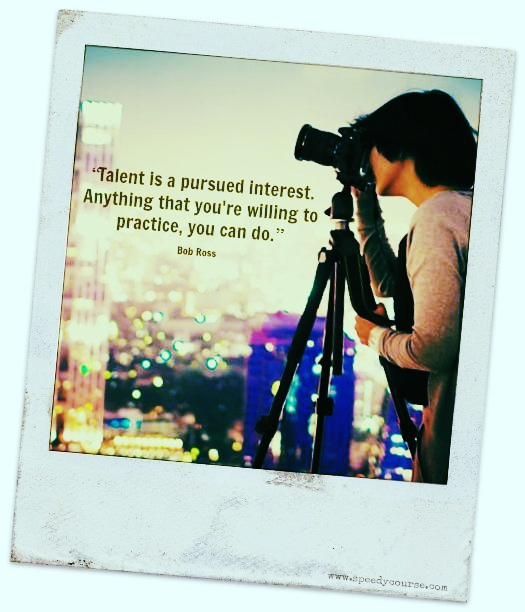When Did You Lose Your Voice?
“Becoming an excellent public speaker will help you in every part of your career. But there is an even more important reason to learn to speak well to an audience. Psychologists tell us that your level of self-esteem, or ‘how much you like yourself,’ largely determines the quality of your inner and outer life. The better and more persuasively you speak, the more you like yourself. The more you like yourself, the more optimistic and confident you are. The more you like yourself, the most positive and personable you are in your relationships with others. The more you like yourself, the healthier, happier, and more positive you become in everything you do.”
When I work with adult clients, I often hear something along the lines of, "I hate the sound of my voice."
Instead of thinking of your voice as something to be beaten, cajoled, or "fixed" I want you to think of when you decided your voice betrayed you. Were you called on to read aloud in class and found your voice let you down? Were you asked to report to a Manager and found your tongue had become heavy and dull, stopping the words in your brain from forming in your mouth? Was there a time when you felt consumed by great emotion, but when you opened your mouth you didn't recognize the voice that emerged?
In actuality, it is not the voice that is the problem. Rather than fixate on the voice, start with the breath and the body. In times of stress or pressure, we respond with flight/fight/freeze. Our breathing changes, our body gets tense. We constrict. And a constricted self does not support the voice.
Somewhere along the way, you have taught yourself coping mechanisms - useful for survival, but not for much else. I work with clients to set down new neurological patterns, habits that enable them to be relaxed and connected so that they can speak without strain, without feeling as if their brains have shut down.
“A constricted self does not support the voice.”
When I start working with my clients, we look at what is happening in the body and voice, what unique patterns have formed. In order to build vocal skills, we often start with the breath and the body. However, this is not yoga or relaxation class. Our focus is always on the voice, creating a strong instrument that is supported, expressive, and clear. Once the breath is located in and supported by the body, we learn to use the voice as an expressive instrument. I often talk about "painting with the voice" as there are so many rich ways to illustrate the content of your speech with the quality of your voice. When your voice confidently supports your message, listeners find you more trustworthy, can follow your train of thought, and will better retain what you tell them.
I have worked with teachers whose voices were squeaky and breathy. I have worked with managers whose bodies revealed nervous energy, undercutting their authority. I have worked with heads of Police and Fire departments whose rigid bodies resulted in flat voices. I have worked with entrepreneurs who had trouble communicating their stream of ideas effectively to possible investors. I have worked with individuals who dream of becoming influencers and coaches in their field of expertise, yet who found being seen and heard exhausting and uncomfortable.
“you have the choice to give up or grow.”
Each client learned about their own foibles and each client saw shifts as we set down new neurological pathways for their voice and body, resulting in growing confidence in their voice. My favourite moments are those "wow!" experiences when clients surprise themselves with an unexpected breakthrough that they previously imagined impossible.
If you find you have a burning desire to communicate yet are experiencing trouble in finding your true voice, you have the choice to give up or grow. I offer practical techniques, a rich range of experiences, an unwavering base of support, and a great deal of enthusiasm for your progress.
Whatever your aims, we can aid you in achieving your goals with our individualised approach and flexible sessions. Contact us:
My Speech Arts Journey, Pt. 1
I remember walking into her studio in the church, fresh from my weekly Girl Guides meeting, silent, shy, unsure of what to expect from this "speech arts" teacher. Her personality enveloped me immediately. I was in awe of this stunning, warm, charismatic woman who thought that I, an awkward nine-year-old girl, was worth her full attention and time.
As a young girl, I was very introverted. I like animals, reading any book I could find, dancing, and dressing up in my Grannie's clothes - my only connection to a woman who had passed away shortly after my birth. I was a very serious child and was moved to tears often. I was, at times, ashamed of my "R's" - tricky sounds that came out all wet. Instead of raining, I said it "waned".
But, when given the opportunity to dress up and perform on stage in my class plays, I came alive! I knew how my character moved, I always knew what to say, what would happen next.
A few months after I had moved to a new preschool, I choreographed my own dance to Phantom of the Opera to perform at the school's talent show.
I once interrupted a juggler to tell a joke (I had gone blank when he asked me earlier and felt the need to redeem my failing career as a 5-year-old comic).
In grade 3, I played Sandman. I got to run around in my pyjamas and my mother made a purple sleeping cap covered in silver stars. I loved my costume, my role, and I felt comfortable in my own skin, a rarity for me. My friend's grandmother had once been an elegant actor. After watching me perform, she suggested to my mother that I begin theatre training.
Through a recommendation from another parent, my mother found "Ms B", a speech arts teacher, and I began the most remarkable journey.
To Be Continued...
Whatever your aims, we can aid you in achieving your goals with our individualised approach and flexible sessions. Contact us:
And So It Begins...
This is one of my favourite mugs. It was given to me by a special student I taught back when I lived and worked in Vancouver. On our last day together, she came in with this marvellous gift. I packed it carefully into the moving truck and it has sat in my kitchen. With the advent of this website and business, I felt that now was a perfect time to take it down off the shelf, remove it from its box and use it.
It is a good reminder. Sometimes I struggle with change. I like my patterns and to do lists. I am also a walking contradiction. I can get restless, looking for the new, looking for ways I can build my skills or improve on my weaknesses. I hate being out of my comfort zone, but I push myself out of it often.
I have been experiencing this quite a bit.
This is something I often say to my clients: make friends with discomfort. There will be an entire post (or five) devoted to this specific topic, but not today. Today is about celebration because you found us and nothing makes a good story like a search, discovery, and personal growth.
How can you make way for the new?
What is unsettled in you?
“Make friends with discomfort”
I love teaching speech arts because it is where art and science intersect. I love being able to blend my training in a range of areas, neurology, voice, physical theatre, ACT, and athletics, to name a few, with the art of genuine connection. I have found the ability to speak and connect has unlocked opportunities for me, which has then allowed me to help others.
I look forward to speaking further about some of my experiences and philosophy that underpins my approach through this blog.
Whatever your aims, we can aid you in achieving your goals with our individualised approach and flexible sessions. Contact us:







